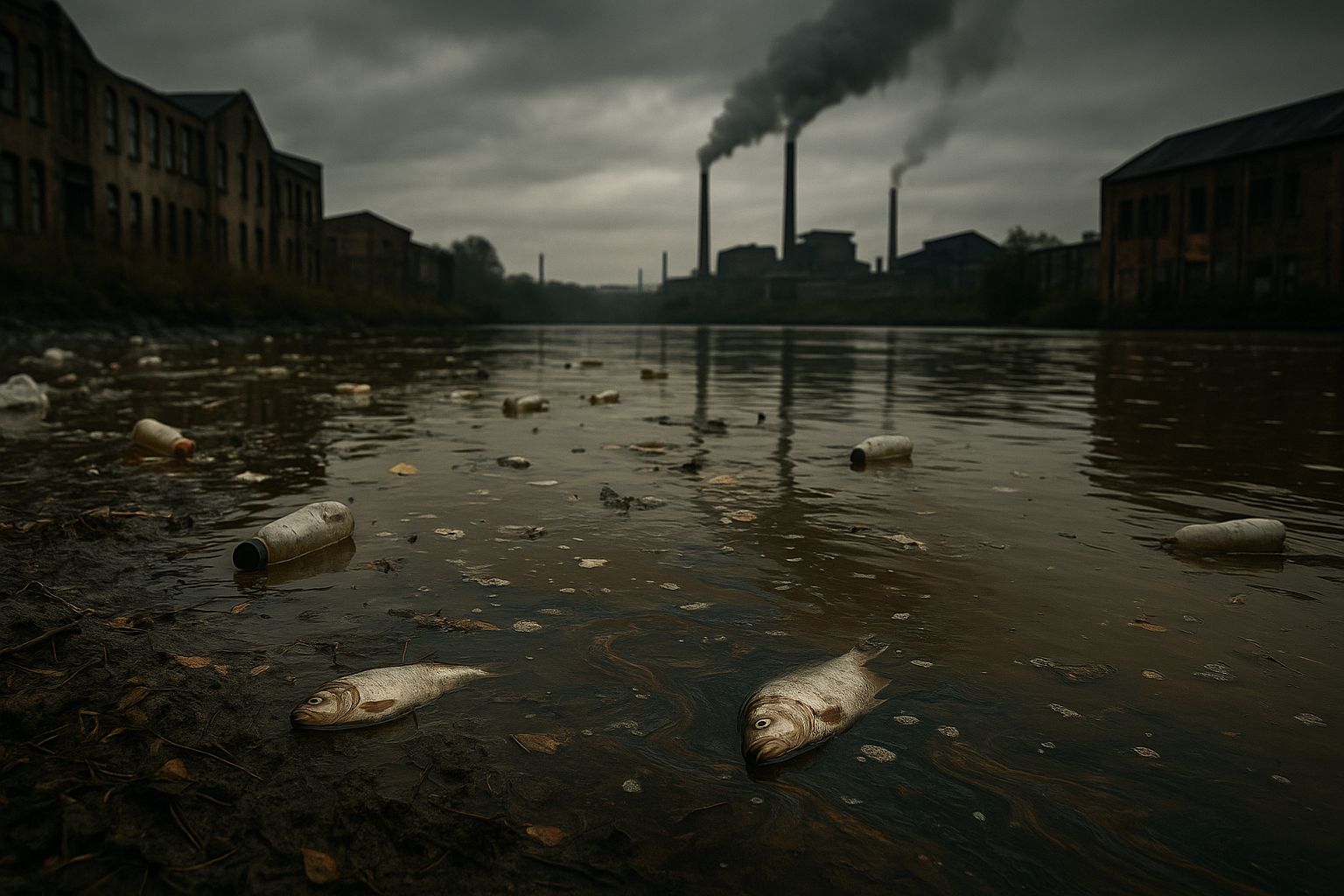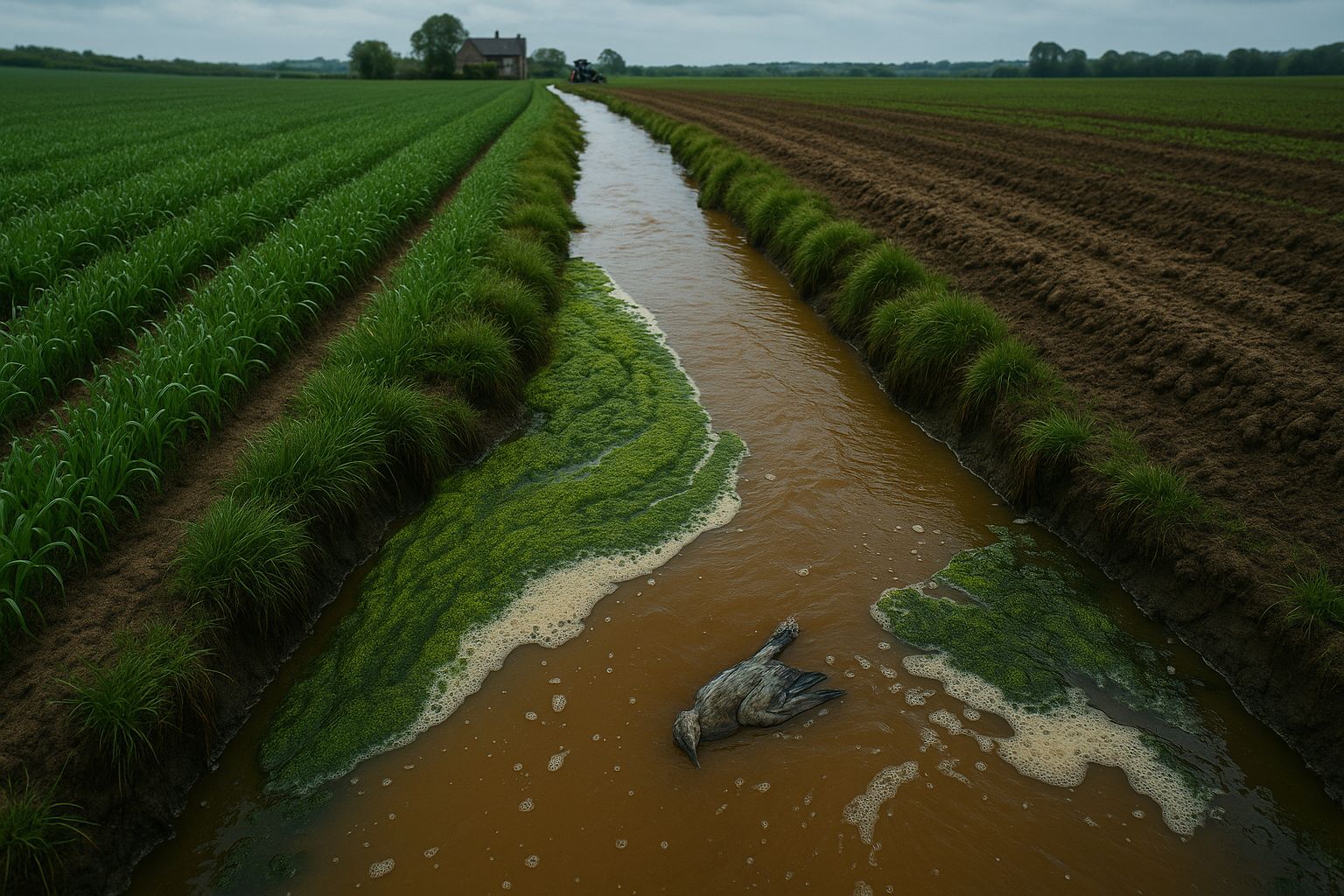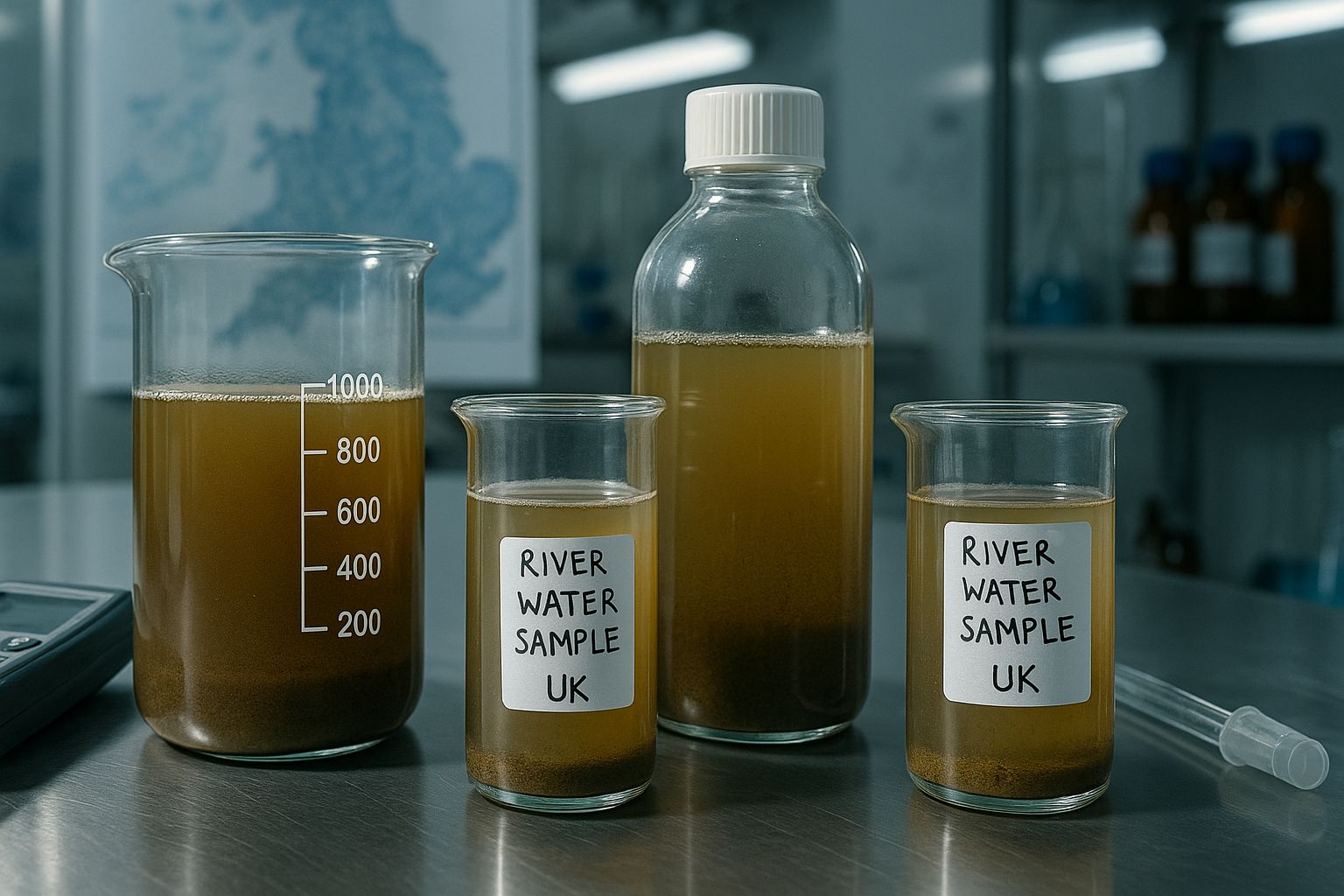- Green Glow
- Posts
- 🌱 UK Environment Agency Sounds Alarm on Soaring Water Pollution 🌊🚨
🌱 UK Environment Agency Sounds Alarm on Soaring Water Pollution 🌊🚨
The UK Environment Agency reports a 30% surge in water pollution incidents in 2024, with Thames Water and others under fire. Learn what’s behind the rise, who’s responsible, and what reforms are underway.
The UK Environment Agency (EA) has issued a stark warning following a dramatic increase in water pollution incidents across England. According to figures released on July 18, 2025, pollution events linked to water and sewage companies surged by nearly 30%, rising from 2,174 incidents in 2023 to 2,801 in 2024.
This increase is raising red flags among environmental advocates, public health experts, and the general public, as it points to what the EA describes as “systemic failure and underperformance” by England’s water companies.
Table of Contents

Three Companies Behind the Majority of Offenses
The EA’s inspections revealed that just three companies—Thames Water, Southern Water, and Yorkshire Water—were responsible for a staggering 81% of all pollution incidents in 2024.
Thames Water topped the list, responsible for 33 major incidents.
Southern Water followed with 15.
Yorkshire Water was blamed for 13.
All nine water and sewage companies operating in England were found to have deficient overall performance, sparking questions about industry-wide accountability and the effectiveness of existing oversight.
Noncompliance Widespread Across the Sector
The EA conducted over 4,000 inspections of water company assets in 2024. Disturbingly, 24% of the inspected sites were deemed noncompliant, a clear indicator of widespread negligence or mismanagement.
EA Chairman Alan Lovell said in a press release:
“We have made significant changes to tighten our regulation of the water industry and ensure companies are held to account. With a dedicated larger workforce and increased funding, our officers are uncovering and acting on failures to comply with environmental law.”
Legal Reforms: The Water [Special Measures] Act
To reinforce its regulatory teeth, the government enacted the Water [Special Measures] Act in February 2025. This legislation provides the EA with enhanced authority to:
Penalize offending companies
Recover enforcement costs
Block bonuses for executives at companies responsible for pollution
These measures are designed to ensure that environmental violations have real financial and operational consequences—aiming to deter future infractions and restore public trust.

Environmental and Public Health Implications
The environmental impact of increased water pollution is profound. Contaminated rivers and seas not only harm aquatic ecosystems, but also pose serious risks to human health, especially through contaminated drinking water, recreational exposure, and compromised fisheries.
Rising pollution also threatens biodiversity, with pollutants such as untreated sewage reducing oxygen levels in rivers and damaging habitats for fish, birds, and other wildlife.
Public Outcry and Growing Activism
Public frustration with water companies has been mounting, fueled by repeated reports of illegal sewage dumping, aging infrastructure, and executive bonuses despite poor performance. Environmental groups like Surfers Against Sewage and The Rivers Trust have called for:
More transparency from water companies
Stricter enforcement from regulators
Criminal liability for repeat offenders
Grassroots campaigns and citizen science initiatives are also gaining momentum, with communities monitoring local waterways and demanding action.
What Happens Next?
While the EA’s tougher stance and new legislation are promising signs, real change will depend on consistent enforcement, corporate accountability, and continued public pressure.
As the UK grapples with this environmental crisis, one thing is clear: water pollution is not just a regulatory issue—it’s a public health emergency, an ecological disaster, and a test of how seriously we take our stewardship of natural resources.

Conclusion
The UK’s escalating water pollution problem is a wake-up call. The numbers speak for themselves, and the burden of change now falls on both the regulators and the regulated. Will 2025 be the year the tide begins to turn?
FAQs
Why has water pollution increased in England?
Water pollution in England rose due to systemic underperformance by water companies, poor maintenance of infrastructure, and inadequate compliance with environmental regulations. The Environment Agency found that 24% of inspected sites in 2024 were noncompliant.
Which companies are most responsible for the pollution?
Three companies—Thames Water, Southern Water, and Yorkshire Water—were responsible for 81% of pollution incidents in 2024. Thames Water alone accounted for 33 major events.
What is the UK government doing about the pollution crisis?
The government passed the Water [Special Measures] Act in February 2025, giving regulators more power to fine polluters, recover enforcement costs, and restrict executive bonuses at offending companies.
How does water pollution affect the public?
Polluted water poses health risks, damages ecosystems, and impacts recreation and local economies. It can contaminate drinking water sources and harm wildlife in rivers and coastal areas.
What role does the Environment Agency play?
The Environment Agency is the UK’s primary environmental regulator. It conducts inspections, enforces laws, and holds water companies accountable for pollution through legal and financial penalties.
You May Also Like
External Links
Air pollution still plagues nearly half of Americans. That does a number on our health
Kicking up a stink: row over sewage pollution blighting Cape Town’s beaches
A Stunning Image of the Australian Desert Illuminates the Growing Problem of Satellite Pollution
Paris said au revoir to cars. Air pollution maps reveal a dramatic change.
Follow Us:
X: https://www.x.com/greenglownews
Youtube: https://www.youtube.com/@greenglownews
Instagram: https://www.instagram.com/greenglownews
Sponsored Links